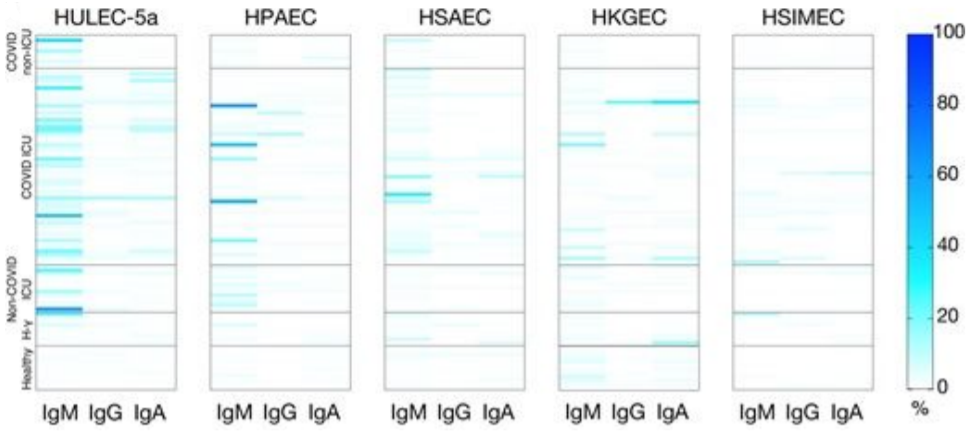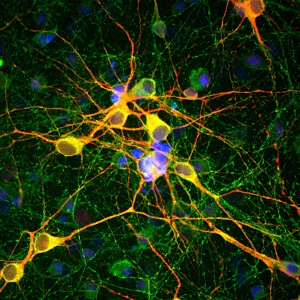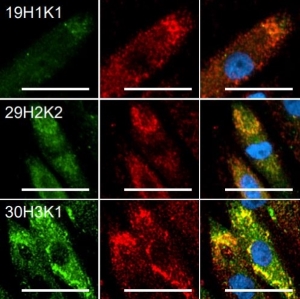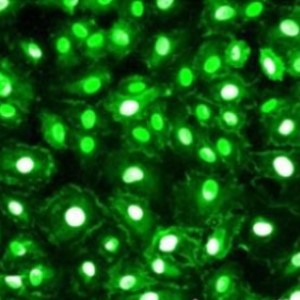Better understanding the COVID-19 virus is key in developing therapeutics that could help end the pandemic. At Neuromics, we offer many reagents that can be used in COVID-19 research, including human cells, antibodies, and more.
Recently, researchers from Emory University released their preliminary findings on the pathogenesis of severe COVID-19 using our Human Small Intestine Endothelial Cells.
Image: Detected auto Ig levels in specific cell types, including our human small intestine endothelial cells (HSIMEC)
Learn more about their findings.

Researchers looked at the plasma of COVID-19 patients and compared it to healthy patients. They discovered that a high proportion of plasma from critically ill COVID-19 patients contained auto-reactive immunoglobulin M (IgM) and infrequently auto-reactive IgG or IgA when compared to the plasma from the control group. They also looked at how the auto-IgM cells recognized various cell types in vitro. This research suggests IgM-mediated autoimmune reactivity may play a role in severe COVID-19, and could be looked at as a therapeutic target.
Citation
- Cheryl Maier, Andrew Wong, Isaac Woodhouse, Frank Schneider, Deanna Kulpa, and Guido Silvestri. (2020). Broad Auto-Reactive IgM Responses Are Common in Critically Ill COVID-19 Patients.Cell Reports Medicine. doi: 10.1016/j.xcrm.2021.100321






